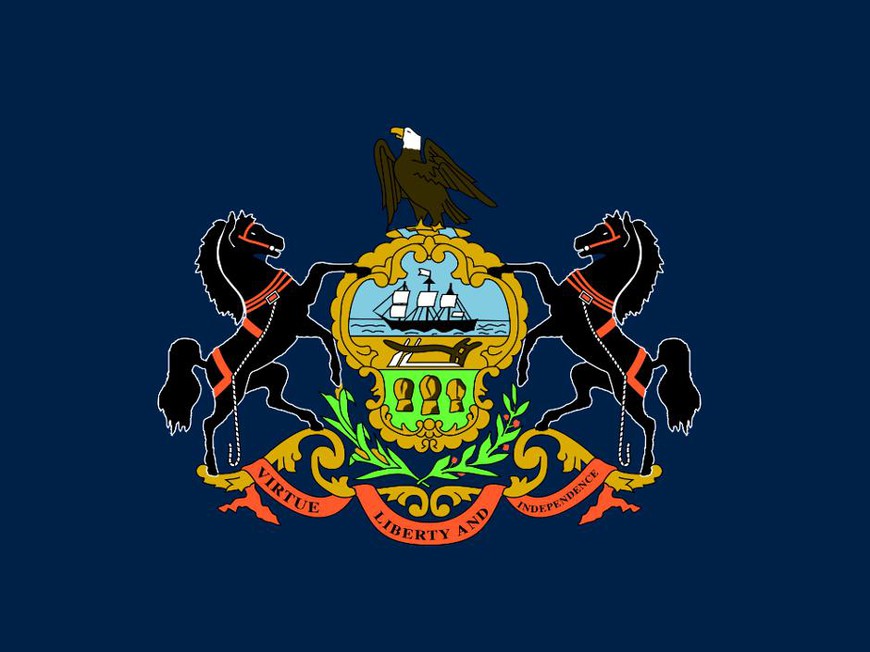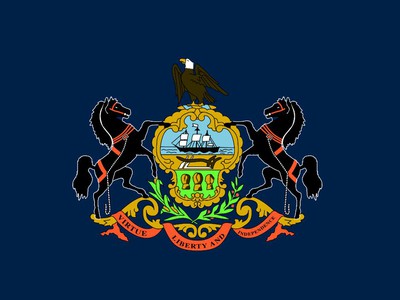

The Pennsylvania Gaming Control Board (PGCB) has issued notice to online gambling licensees warning them that they will need to comply with the new interpretation of the Wire Act by the US Department of Justice (DOJ).
With plans to offer online gaming in PA already in motion, operators may have to suddenly change course, which could ultimately delay the launch of the state’s online gaming market.
Online sports betting, daily fantasy sports, poker, casino games and other forms of online gaming whose data and communications cross state lines may be at risk under the recent DOJ U-turn.
The change in opinion of the Wire Act by the DOJ follows a 2011 opinion from the Office of Legal Counsel stating that the DOJ believed the Wire Act only applied to gambling on sports. The new interpretation sees the restrictions of the Wire Act applying to all cross-state gambling operations—not just to sports betting—as the DOJ seeks to keep gambling strictly within state lines.
“While we fully recognize that this change may alter the plans of licensees in implementing expanded gaming offerings,” said Pennsylvania Gaming Control Board (PGCB) Director Kevin O’Toole. “It is a change not of the Board’s making but one commanded by the changing interpretation by federal law enforcement authorities. It is your obligation to comply with the federal law in all respects in establishing your gaming operations which must now be entirely ‘intrastate’.”
Pennsylvania Gives Operators 30 Days to Change Course
The DOJ has given current operators a grace period of 90 days to bring their processes in line with the new interpretation of the act.
However, with Pennsylvania online gaming operators still preparing for the launch of regulated igaming in the state, this new interpretation by the DOJ could cause delays.
Regulations in Pennsylvania previously allowed online gaming operators to host their servers and equipment anywhere in the US as long as the location met a stringent set of criteria outlined by authorities. However, given the reinterpretation of the Wire Act, such provisions would contravene federal law.
As a result, O’Toole and the PGCB have given those operators that had planned to locate their equipment outside of Pennsylvania 30 days to revise and submit new plans that comply with the DOJ’s latest opinion.
What Is The Wire Act?
The Wire Act was drafted back in 1961 with the intent to limit sports betting via telephone and telegraph across state lines. Later, opponents of online gambling attempted to use the vagueness of the law to restrict gambling over the internet.
However, in 2011 under the Obama administration, the DOJ issued an opinion that the Act was only applicable to sports betting. This allowed the dawn of shared player pools and game liquidity for online poker between the states of Nevada, New Jersey and Delaware, where online poker is legal and regulated.
“We do not lightly depart from our precedents, and we have given the views expressed in our prior opinion careful and respectful consideration,” the most recent DOJ opinion states. “Based upon the plain language of the statute, however, we reach a different result. While the Wire Act is not a model of artful drafting, we conclude that the words of the statute are sufficiently clear and that all but one of its prohibitions sweep beyond sports gambling.”
Now any casino or gaming operator has data flowing across state borders is at risk from the new ruling—unless it drastically changes the way it operates.
What are the Potential Effects of the New Wire Act Interpretation?
The reversal of the DOJ can have far reaching consequences beyond that of Pennsylvania. Nevada, Delaware and New Jersey. Unless further clarification is provided by a new law or court ruling, the expansion of online gaming that depends on large player pools, such as poker, could be in jeopardy.
888’s All American Poker Network, which currently spans the three states where online poker is active is among those that are currently at risk of enforcement by the federal authorities.
However, other gaming activities that utilize resources in multiple states such as multi-state lotteries, progressive slot jackpots, daily fantasy sports and even traditional sports betting operations which rely on data from other states may find themselves out of compliance.
Even financial transactions that cross state lines could be viewed as running afoul of the recent DOJ opinion.
In the past we have seen financial institutions take the most risk-adverse approach to online gaming, and as such, the decisions of the banking industry will likely serve as a barometer for the course of gaming in the US until a higher government authority has its say on the Wire Act.

